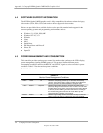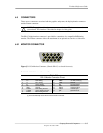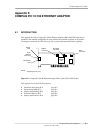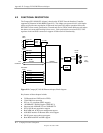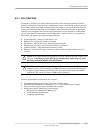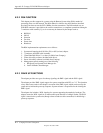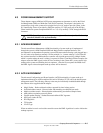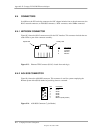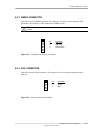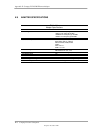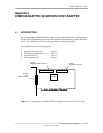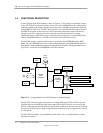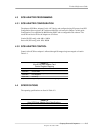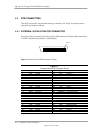
Technical Reference Guide
Compaq Personal Computers
Original - December 2000
K-5
K.3 POWER MANAGEMENT SUPPORT
These adapters support APM and ACPI power management environments as well as the Wired-
for-Management (WfM) and Wake-On-LAN (WOL) standards. The adapter is designed to be
powered up as long as the system unit is plugged into a live AC outlet to provide system “wake-
up” functionality. Power is provided by either the auxiliary 3.3 VDC power rail of the PCI bus
(when installed in systems compliant with PCI ver. 2.2) or by auxiliary 5 VDC through the WOL
connector.
NOTE: Controlling a system unit’s power through an AC outlet strip will, with the strip
turned off, disable wake-up functionality.
K.3.1 APM ENVIRONMENT
The Advanced Power Management (APM) functionality of system wake up is implemented
through the system’s APM-compliant BIOS and Magic Packet-compliant hardware. This
environment is not dependent on operating system (OS) intervention allowing a unit plugged into a
live AC outlet to be turned on remotely over the network (i.e., “remote wake-up”) even if the OS
has not been installed. In APM mode the controller will respond upon receiving a Magic Packet,
which is a packet where the node’s address is repeated 16 times. Upon Magic Packet reception, the
adapter asserts the PME- signal (on the PCI bus) resulting in the system unit’s power control logic
turning on the system and initiating the boot sequence. After the boot sequence the BIOS clears
the PME- signal so that subsequent wake up events will be detected.
K.3.2 ACPI ENVIRONMENT
The Advanced Configuration and Power Interface (ACPI) functionality of system wake up is
implemented through an ACPI-compliant OS (such as Windows NT 5.0) and is the default power
management mode. The following wake up events may be individually enabled/disabled through
the software driver supplied with the adapter:
♦ Magic Packet – Packet with node address repeated 16 times in data portion.
♦ Individual address match – Directed acket with matching user-defined byte mask.
♦ Multicast address match – Directed packet with matching user-defined sample frame.
♦ ARP (address resolution protocol) packet
♦
Flexible packet filtering – Packets that match defined CRC signature.
♦ NBT query (under IP 4.0)
♦
IPX Diagnostic
♦ TCO packet
♦
VLAN Type
When an enabled event is received the controller asserts the PME- signal that is used to initiate the
wakeup sequence.




